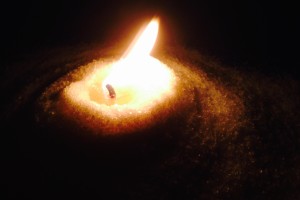Day of Pentecost | John 15:26-27; 16:4b-15
Lectionary Project—Part of an ongoing three year project of weekly posts related to the Sunday reading from the Revised Common Lectionary. A study in practical theology.
 On this Sunday, the Church celebrates the Day of Pentecost. The Christian remembrance of this day depends upon accounts left by the early followers of Jesus, left leaderless after his crucifixion. They told of experiencing the presence of the Spirit of God in ways that make little sense to modern readers. To make the matter more mysterious, the accounts do not even agree with one another.
On this Sunday, the Church celebrates the Day of Pentecost. The Christian remembrance of this day depends upon accounts left by the early followers of Jesus, left leaderless after his crucifixion. They told of experiencing the presence of the Spirit of God in ways that make little sense to modern readers. To make the matter more mysterious, the accounts do not even agree with one another.
According to the book of Acts, something “like tongues of fire” appeared to these earliest Christians, or happened to them, or by some other difficult to describe experience changed them. Afterward they left off their new practice of withdrawing from society, as they had done partly in fear of persecution and partly for lack of a clear idea of what else to do, and went out among the streets and people of Jerusalem, telling everyone that Jesus had been resurrected.
That makes a string of odd experiences.
John recalls the events differently than the other gospels. In the verses outlined by the lectionary, Jesus tells his followers that he is leaving them, and that only when he has left them will they come to know another aspect of God, the Advocate, the Spirit of truth. In this gospel, after the crucifixion a resurrected Jesus and some of his followers are gathered in a room when he breathes on them—another peculiar detail—and tells them to receive the Holy Spirit.
The New Testament accounts are not clear, and they do not tell the same story. We might agree that something happened to change the way these earliest Christians understood the presence of God. We might agree precisely because of the lack of agreement in the texts—if these folks were making it all up, surely they would have done a better job of getting the details down, but their focus appears to have been on the result, not the method.
Whether some of these people had a visual or physical experience of fire, or were merely expressing their experience in such language as a metaphor, or were more apt to describe some quieter occurrence as in the Gospel of John, all of them claimed that something happened. More to the point, these early Christians began to behave in a different way—something changed in them and something changed in the way they related to the people and the world around them—and as a result our own civilization changed with them. Whatever they experienced was powerful enough to change history.
Oddly, in this passage of John’s Gospel, Jesus tells his followers that “…it is helpful to you that I go away.” The word translated as helpful, or as to your advantage, literally means bring together. (Even today, to ‘get it together’ means something a little different than what the words convey.) We find a version of the same term in Acts 19:19 — “…those who had practiced magic arts brought together their books and burned them….” The greater oddness of that passage aside, it is interesting to think that the words of Jesus have a double meaning: it is to your advantage and it will bring you together.
 At a stretch, then, we might translate the verse this way: But I tell you the truth, you will be brought together if I go….
At a stretch, then, we might translate the verse this way: But I tell you the truth, you will be brought together if I go….
Whatever the meaning, that was the effect.
Watching a teacher is a good way to learn, but we don’t really know something for ourselves until we do it for ourselves. Hearing the gospel taught, listening to the words, is not the same as living and sharing the gospel. Hearing that God draws near to us, whether we recognize the moment or not, is not the same as internalizing it, having faith that it is so. Hearing that our failures can be redeemed, that there is always an opportunity for grace, is not the same as accepting it, walking with it.
The followers of Jesus got it together when he left them. He got out of the way. If we hope to experience love and grace and God in our lives, sometimes the best thing we can do is to get out of the way.







 t to a grownup?
t to a grownup?

